Coming from Singapore, in Southeast Asia, I was never too far away from the seaside. As a kid, I could spend hours bobbing up and down on the waves, messing around in a kayak, or running after small fish and crabs during weekend getaways to the coast. However, no destination I’d ever been to could compare with the magical blue waters of Timor-Leste. Volunteering with BV gave me the opportunity to be amazed by Ataúro Island’s marine life everyday without fail for six weeks.
One of my favourite dives on Ataúro was Briti Rala, a beautiful little cove to the south of the island, with reefs growing along a steep cliff. I could hardly believe that the brightly coloured soft corals and huge gorgonian sea fans were not from some alien world. Whenever I peeked into a crevice along the reef, a moray eel, shrimp or crayfish would be staring back up at me. To cap it all, our dive instructor Laura pointed out a Napoleon Wrasse swimming by, and it was even taller than me!
In the middle of the dive however, we turned a corner and suddenly a wave of used plastic cups, fishing nets, food wrappers and plastic bags appeared in front of us. The currents flowing around the island converge in this exact spot, bringing with them debris collected from all around the region.
This harrowing sight made me think about the sheer amount of plastic we throw carelessly into the ocean. Most of it is never seen again by its disposers, but has gone on to pollute ecosystems on a distant shore. Marine animals can swallow plastic pieces, become tangled around nets and rings, or become poisoned by the toxic chemicals in or adsorbed onto plastics.
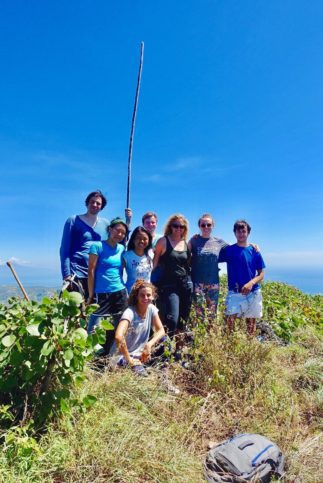
Rebecca with the other volunteers from her Blue Ventures expedition in Timor-Leste
That dive in Briti Rala made me deeply reflect on the habits that I was so used to at home. I think the reason why most people, including me in the past, don’t give the problem of marine debris enough attention is because they don’t realise how bad the situation is. My experience really opened my eyes, but without this kind of first hand experience, there’s often no motivation to change the way we use and dispose of things.
In places like Singapore, convenience takes priority. We use disposable plastics so that we don’t have anything to clean up once we’re finished eating. We throw our trash down a chute or leave it outside of our house and come the next morning, it’s gone. We have become numb to the environmental impacts of our actions, and the rate at which we use up and dispose of these single-use items has just become so unsustainable.
On reflection, I thought that the best way I could encourage others to preserve the marine environment was to start a conversation about these practices and how we can change them. I organised a dinner gathering for some of my family members and friends to talk a little bit more about the problem of marine debris and why it needs our attention.
I invited about thirty friends and family members for a home-cooked dinner, and started the evening with a short presentation on the marine environment and the threats it is facing because of human activity. I focused on the problem of plastics and what we can do to reduce our plastic use.
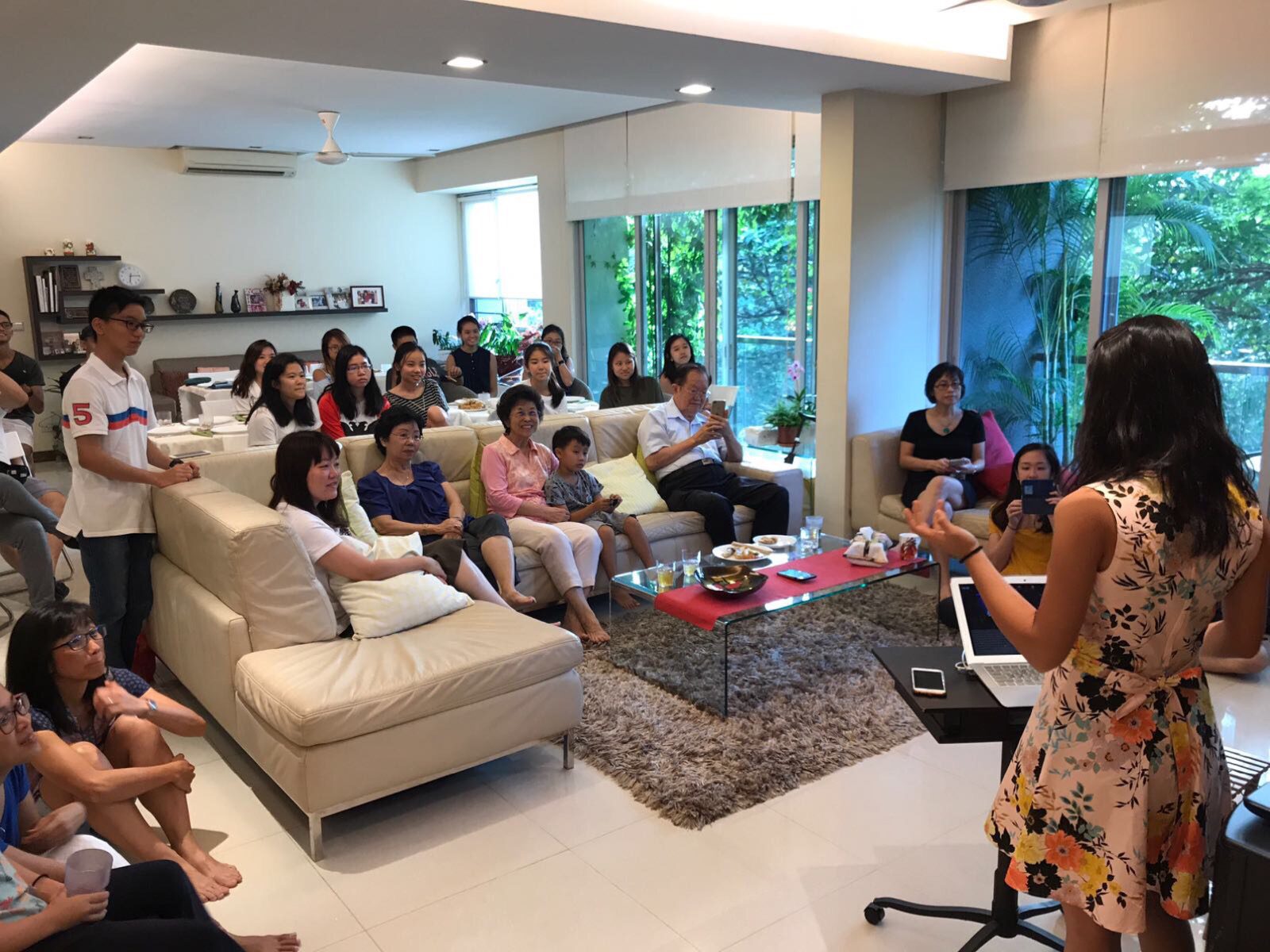
Rebecca giving her presentation on the threats facing the world’s marine environments.
At the end of the presentation, I talked about the experience I had with BV in Timor-Leste, and the community on Ataúro whose livelihoods depend on a healthy ocean. Instead of asking them to contribute to the cost of dinner, I asked them to consider making a contribution to support this community and the work that Blue Ventures is doing in Timor-Leste.
Drawing inspiration from the weekly beach clean-ups we did as an expedition team on Ataúro, I also organised a group clean-up in Singapore as part of the Ocean Conservancy’s International Coastal Cleanup. This experience served as another reminder of the amount of trash that washes up along shores around the world, and the even greater amount left floating in the sea.
The money raised by my fundraising dinner was not a huge sum by any means, neither was the amount of debris we collected in our clean-up significant enough to even begin addressing the problems that marine debris is causing in the ocean. However, I hoped that the bigger takeaway from these events would be encouraging the people around me to think about the environmental impact of their actions.
We live in an uncertain world, especially with regards to the environment. There are an endless number of threats that the ocean is facing, but instead of responding with despair and hopelessness, we can take action. All it takes is for each individual to make their own decision to try and change their habits. If each person that does this inspires a couple more people to do the same, then I believe that one day, whole countries will be working together to protect the oceans!

Rebecca with BV staff at the 2017 European Coral Reef Symposium
Do you have a fundraising idea? Please let us know at [email protected] and we’ll see if we can help!
Do something worthwhile in 2018, volunteer with us in Timor-Leste.


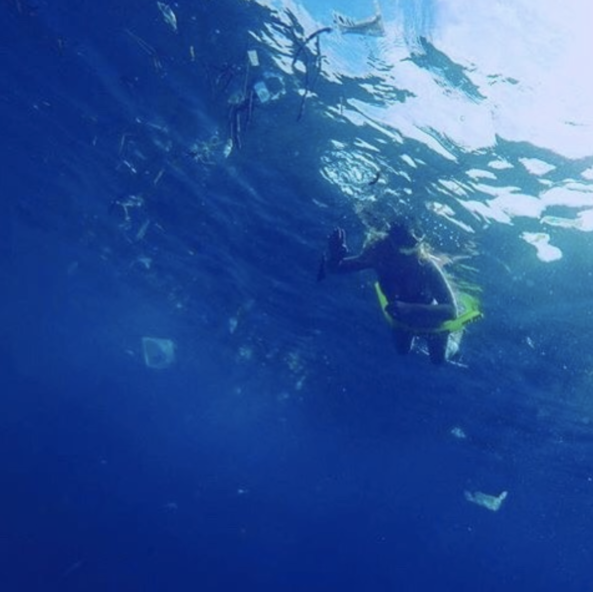
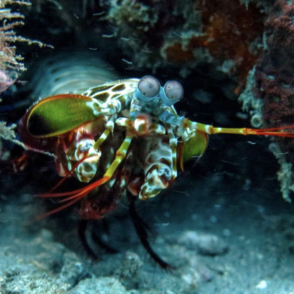
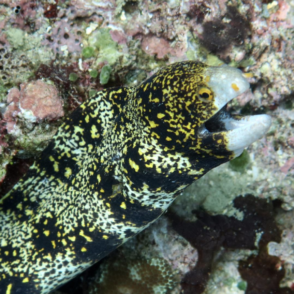
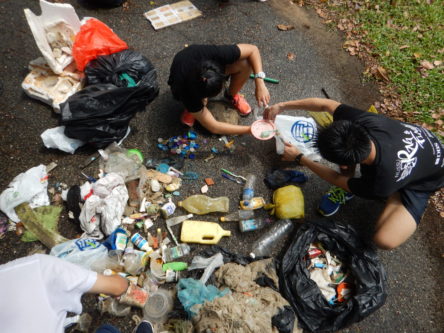
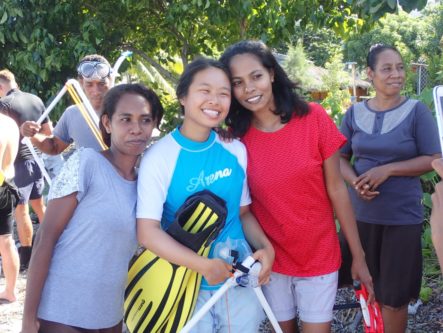
yes great!!